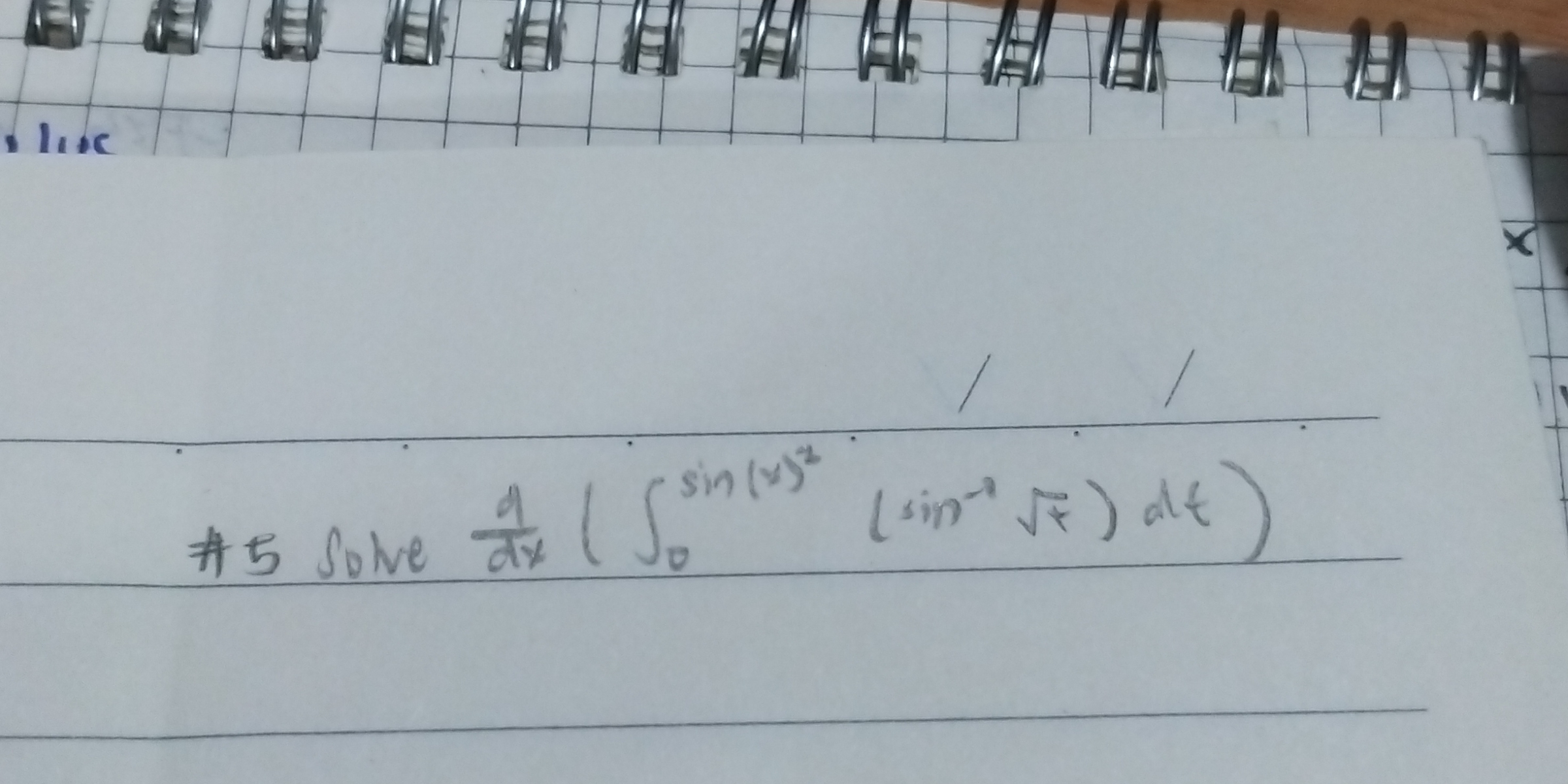Solve \( \frac{d}{dx} \left( \int_{0}^{x} \sin(t^2) \sin^{-1}(\sqrt{t}) dt \right) \)

Understand the Problem
The question is asking to solve the integral of a function involving sine. It specifies the definite integral with limits from 0 to a variable t, indicating it may require techniques of integration or application of calculus.
Answer
$$ \sin(x^2) \sin^{-1}(\sqrt{x}) $$
Answer for screen readers
$$ \sin(x^2) \sin^{-1}(\sqrt{x}) $$
Steps to Solve
- Apply the Fundamental Theorem of Calculus
To solve ( \frac{d}{dx} \left( \int_{0}^{x} \sin(t^2) \sin^{-1}(\sqrt{t}) dt \right) ), we can use the Fundamental Theorem of Calculus. This theorem states that if ( F(x) = \int_{a}^{x} f(t) dt ), then ( F'(x) = f(x) ).
- Identify the Function Inside the Integral
In our case, the function is: $$ f(t) = \sin(t^2) \sin^{-1}(\sqrt{t}) $$ Thus, by the theorem, we have: $$ \frac{d}{dx} \left( \int_{0}^{x} f(t) dt \right) = f(x) $$
- Substitute ( x ) into the Function
Now, we evaluate ( f(x) ): $$ f(x) = \sin(x^2) \sin^{-1}(\sqrt{x}) $$
- Final Expression
Thus, the final result is: $$ \frac{d}{dx} \left( \int_{0}^{x} \sin(t^2) \sin^{-1}(\sqrt{t}) dt \right) = \sin(x^2) \sin^{-1}(\sqrt{x}) $$
$$ \sin(x^2) \sin^{-1}(\sqrt{x}) $$
More Information
The result shows how the derivative of an integral can often involve straightforward evaluations by applying the Fundamental Theorem of Calculus, which significantly simplifies the problem.
Tips
- Forgetting to use the limits of integration: Some might confuse indefinite integrals with definite ones. Remember to apply the limits correctly based on the theorem.
- Incorrect evaluation of the function at the upper limit: Ensure you substitute the upper limit correctly into the original function.
AI-generated content may contain errors. Please verify critical information